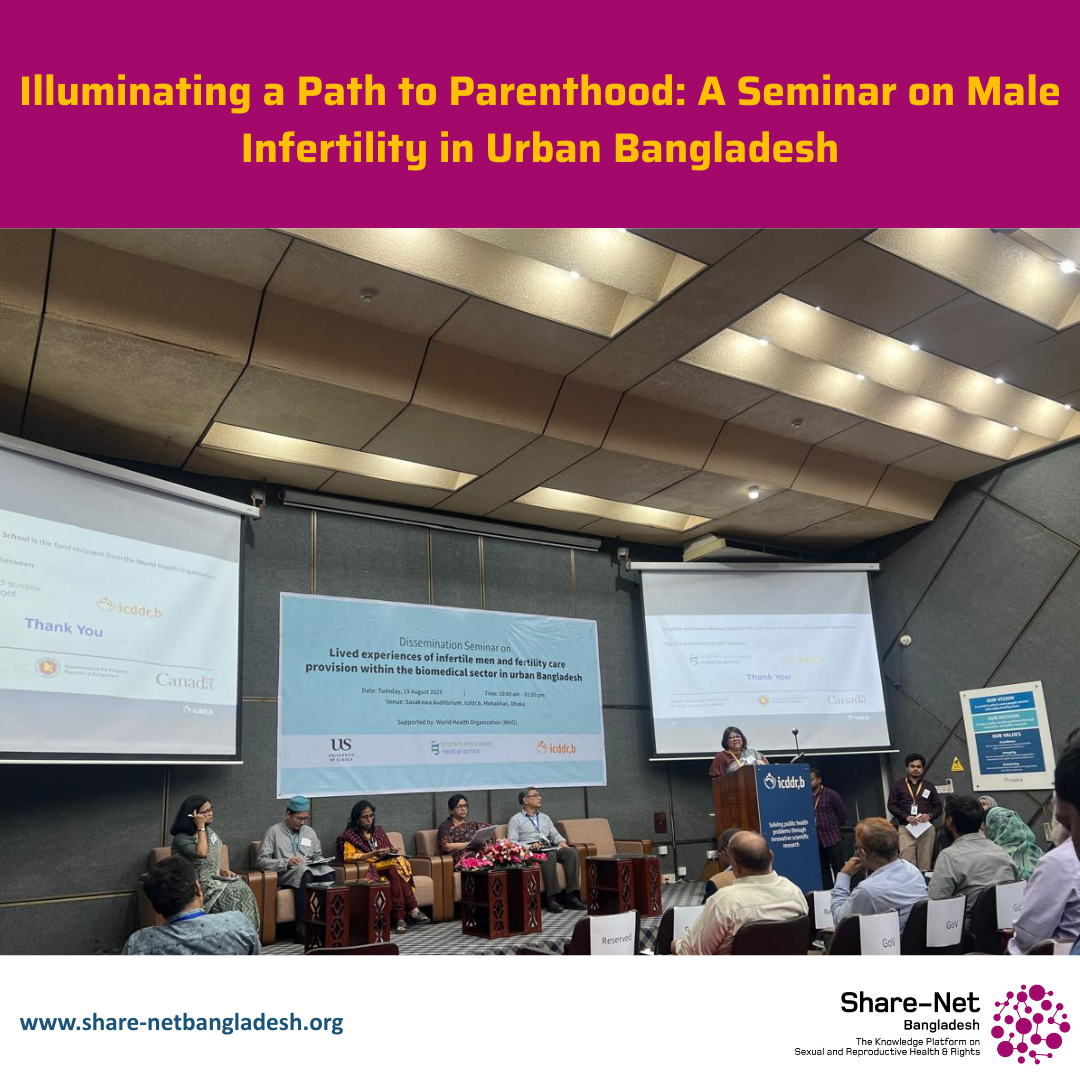Illuminating a Path to Parenthood: A Seminar on Male Infertility in Urban Bangladesh
In a landmark collaborative effort, the icddr,b and Brighton and Sussex Medical School hosted a dissemination seminar on the “Lived Experiences of Infertile Men and Fertility Care Provision within the Biomedical Sector in Urban Bangladesh”. Held at the Sasakawa Auditorium at icddr,b on August 19, 2025, the seminar brought to light the often-overlooked challenges and social stigmas faced by men struggling with infertility. The event served as a pivotal platform to share the findings of a qualitative study that delved deep into the personal and social dimensions of male infertility in an urban setting.
The study, which interviewed 35 infertile men in Dhaka and Khulna along with 25 key informants, including healthcare providers and health policymakers, revealed that infertility is more than a medical issue; it’s a source of profound psychological distress, social stigma, and relationship strain. Findings highlighted how prevailing gender norms often silence men’s emotional and psychosocial needs. Despite infertility being a common issue, the treatment pathway is highly disorganised, leading to delays and confusion. The research also found that access to care is hindered by high costs and a lack of trained professionals, particularly in rural areas.
The seminar was thoughtfully structured, featuring a welcome speech and remarks from distinguished experts. Dr. Md. Sharful Islam Khan, Head of the HIV & AIDS Programme at icddr,b followed by remarks from Dr. James Kiarie of the World Health Organization (WHO), who provided a global context to the issue. The main discourse was driven by a series of insightful presentations. Dr. Md. Nurul Islam Khan offered an overview of male infertility, while Dr. Papreen Nahar, the study’s Principal Investigator from the University of Sussex, presented a systematic review of male infertility in low- and middle-income countries (LMICs).
Subsequent presentations from the Health System and Population Studies Division of the ICDDR,B explored the multifaceted nature of the challenge. The seminar also featured a dynamic Q&A session and remarks from special guests Dr. Nazma Akhter and Dr. Syed Kamrul Islam, both from the Directorate General of Health Services. The Q&A was a highly enlightening session that extended beyond the study findings to cover the broader themes. DGFP Director General Dr. Ashrafi Ahmad graced the dissemination seminar as the Chief Guest, and she emphasised how DGFP has been focusing on the stigmatised, sensitive problems within the reproductive health system of our country to bring in meaningful changes. The noticeable gap in national-level data regarding infertility, particularly when compared to data on fertility rates and family planning, was raised, followed by detailed explanations of the causes of male infertility and proposed remedies like strengthening government medical facilities and increasing government support. High on the agenda was the need to combat stigmas experienced by infertile men, not just in society generally but also within the biomedical community. It was reaffirmed that a holistic approach is needed, which demands not just gynaecologists’ presence but also pathologists, psychologists, and journalists in all decision-making and campaigns about infertility.
The event underscored the urgent need for a more comprehensive and empathetic approach to fertility care in Bangladesh, emphasising that infertility is a shared issue for couples and requires a holistic support system. The seminar concluded with a vote of thanks, leaving attendees with a deeper understanding of the lived experiences and the imperative for improved healthcare provision.

